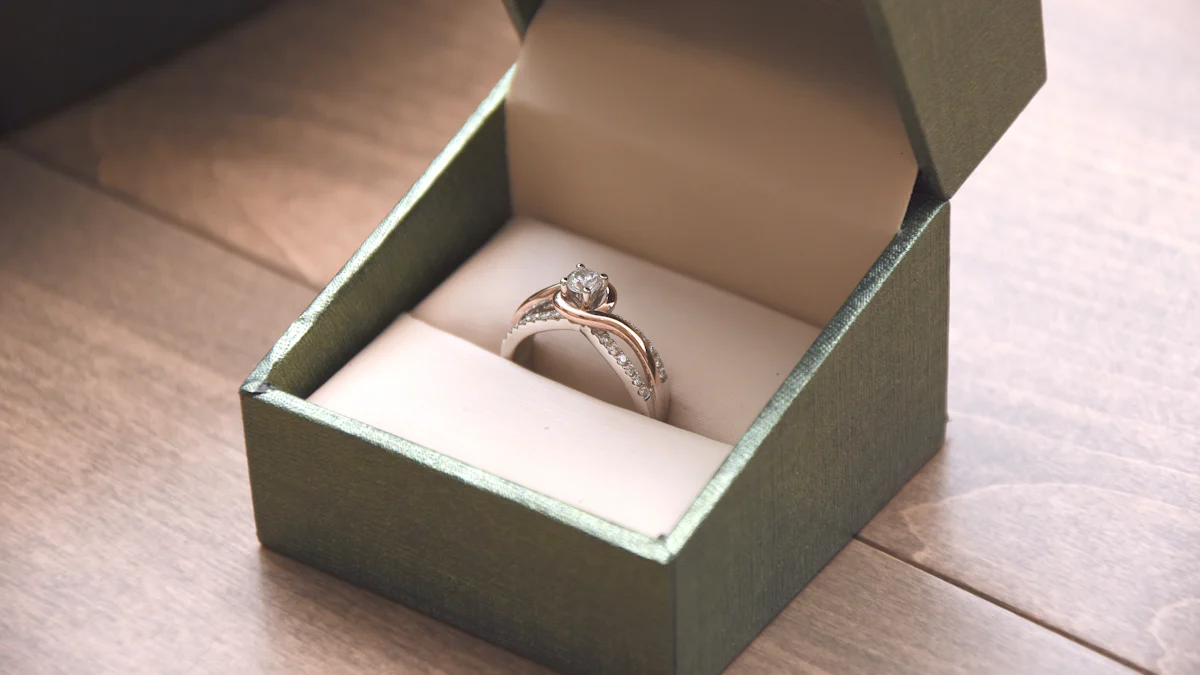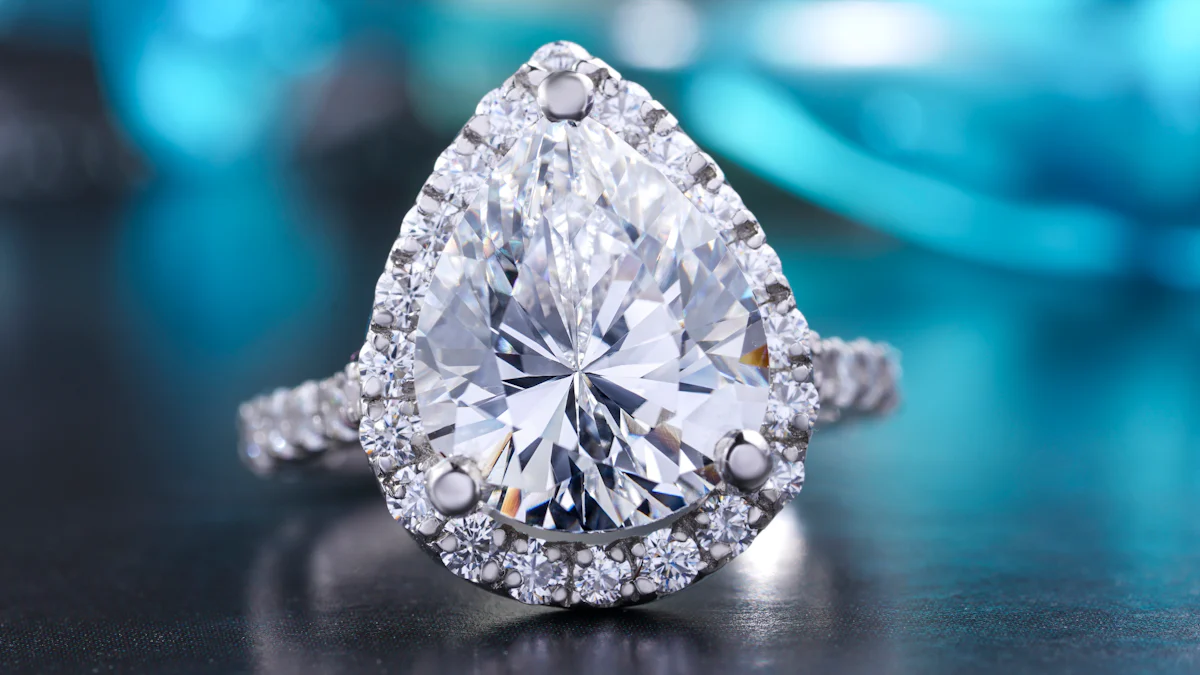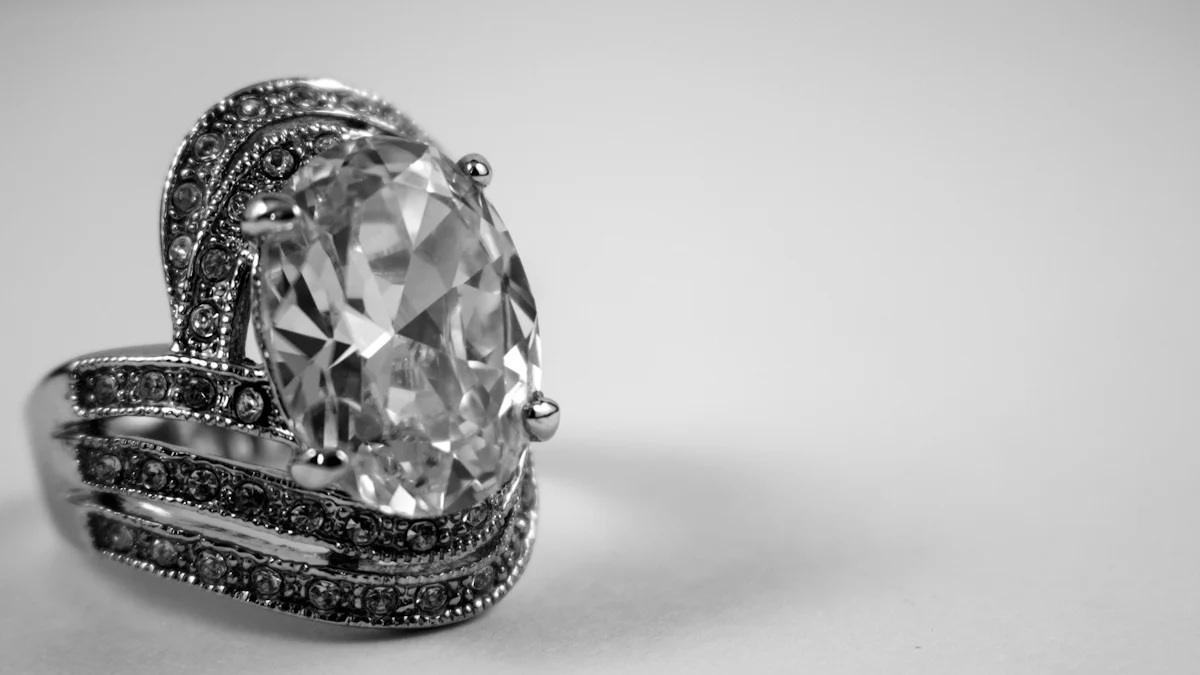How Much is a One Carat Diamond Worth Today

When you wonder how much is a one carat diamond worth today, the answer isn't straightforward. Prices range from $2,300 to $14,500. This wide range reflects various factors that influence diamond pricing. The cut quality, clarity, and color significantly impact the cost. Additionally, whether the diamond is natural or lab-created plays a crucial role. Natural diamonds, often considered the pinnacle of luxury, can command higher prices. In contrast, lab-created diamonds offer a more affordable yet equally stunning alternative. Understanding these elements helps you make informed decisions when purchasing a diamond.
Key Takeaways
- Understand the price range: One carat diamonds can cost between $2,300 and $14,500, influenced by quality factors.
- Familiarize yourself with the 4Cs: Cut, Color, Clarity, and Carat weight are essential in determining a diamond's value.
- Explore both natural and lab-created options: Lab-created diamonds offer a more affordable choice without sacrificing quality.
- Compare prices across different sellers: Online retailers often provide better deals than local jewelers, with prices 20%-40% lower.
- Prioritize overall appearance over carat weight: A well-cut diamond with high clarity can be more visually appealing than a larger, lower-quality stone.
- Stay informed about market trends: Economic conditions and supply-demand dynamics can significantly affect diamond prices.
- Seek expert guidance: Consult with gemologists or reputable retailers to ensure you make an informed purchase.
Understanding the Price Range

When you ask, "how much is a one carat diamond worth," you must consider the current market value and the factors that influence it. Let's delve into these aspects to help you make an informed decision.
Current Market Value
Average Price Range
The average price range for a one carat diamond varies significantly. You might find prices as low as $2,300, while others can soar up to $14,500. This disparity arises from differences in quality and characteristics of the diamonds. The market offers a broad spectrum, allowing you to choose based on your budget and preferences.
Factors Leading to Price Variability
Several factors contribute to the variability in diamond prices. The cut, clarity, color, and carat weight, known as the 4Cs, play a crucial role. A diamond with an excellent cut and high clarity will command a higher price. Additionally, natural diamonds typically cost more than lab-created ones due to their rarity and traditional appeal. Understanding these factors helps you evaluate how much a one carat diamond is worth today.
Price Comparison Across Sellers
Online Retailers
Online retailers often provide a more affordable option for purchasing diamonds. They offer prices that are 20%-40% lower than those of traditional jewelers. Shopping online gives you access to a wider selection of diamonds, ensuring you find the perfect one carat diamond at a competitive price. The convenience of comparing prices across multiple vendors also allows you to secure the best deal.
Local Jewelers
Local jewelers, while offering personalized service, usually have higher prices. Their markups can lead to costs that are 40%-50% more than online options. However, buying from a local jeweler provides the advantage of seeing the diamond in person before making a purchase. This experience can be invaluable if you prefer a tactile shopping experience.
Factors Affecting Diamond Prices

Understanding the factors that affect diamond prices is crucial when determining how much is a one carat diamond worth. These factors include the type of diamond, the 4Cs, and market trends. Let's explore each of these elements to help you make an informed decision.
Type of Diamond
Natural Diamonds
Natural diamonds, formed over millions of years, are often seen as the epitome of luxury. Their rarity and natural origin contribute to their higher price. When you choose a natural diamond, you invest in a piece of Earth's history. This uniqueness often justifies the premium price tag.
Lab-Created Diamonds
Lab-created diamonds offer a modern alternative. They possess the same physical and chemical properties as natural diamonds but come at a lower cost. Advances in technology have made these diamonds more accessible, providing a budget-friendly option without compromising on quality. If affordability is a priority, lab-created diamonds present a compelling choice.
The 4Cs of Diamonds
The 4Cs—Cut, Color, Clarity, and Carat—are the foundation for assessing diamond quality. Each C plays a significant role in determining a diamond's value.
Cut
The cut of a diamond affects its brilliance. A well-cut diamond reflects light beautifully, enhancing its sparkle. Investing in a diamond with an excellent cut ensures you get the most visual appeal for your money.
Color
Diamonds come in various colors, from colorless to shades of yellow or brown. The less color a diamond has, the higher its value. Choosing a diamond with a higher color grade can significantly impact its price.
Clarity
Clarity refers to the presence of internal or external imperfections. Diamonds with fewer inclusions or blemishes are more valuable. Opting for a diamond with high clarity ensures a flawless appearance.
Carat
Carat weight measures a diamond's size. Larger diamonds are rarer and thus more expensive. However, balancing carat weight with other factors like cut and clarity can help you find a diamond that fits your budget.
Scientific Research Findings:
- Studies show that the 4Cs significantly impact diamond pricing. Even slight variations in these factors can drastically change a diamond's price.
Market Trends and Factors
Supply and Demand
The diamond market operates on supply and demand principles. High demand and limited supply can drive prices up. Staying informed about market trends helps you understand price fluctuations.
Economic Influences
Economic conditions also affect diamond prices. During economic downturns, diamond prices may decrease due to reduced consumer spending. Conversely, a strong economy can lead to higher prices. Monitoring economic trends can guide your purchasing decisions.
By understanding these factors, you can better assess how much is a one carat diamond worth today. Whether you prioritize natural beauty or modern affordability, knowing what influences diamond prices empowers you to make a wise investment.
Understanding how much a one carat diamond is worth involves grasping the 4Cs and market trends. These factors guide you in making informed decisions. To get the best value, consider these tips:
- Compare Prices: Look at both online retailers and local jewelers. Online options often offer better prices and selection.
- Consider Lab-Created Diamonds: They provide a cost-effective alternative without sacrificing quality.
- Focus on Overall Appearance: Prioritize the diamond's look over carat weight for a more satisfying purchase.
By following these strategies, you can confidently navigate the diamond market and find a gem that suits your needs and budget.
FAQ
What qualifications do the staff gemologists have?
Our team includes graduates from the prestigious Gemological Institute of America. Their expertise ensures you receive exceptional customer service and reliable guidance when selecting your diamond.
How can I determine the best value for a one carat diamond?
To find the best value, focus on the 4Cs: Cut, Color, Clarity, and Carat. Prioritize the diamond's overall appearance and brilliance. Compare prices from both online retailers and local jewelers to ensure you get the best deal.
Are lab-created diamonds as good as natural diamonds?
Yes, lab-created diamonds possess the same physical and chemical properties as natural diamonds. They offer a cost-effective alternative without compromising on quality. If affordability is a priority, consider lab-created diamonds.
Why do online retailers offer lower prices than local jewelers?
Online retailers often have lower overhead costs, allowing them to offer competitive prices. They provide a wider selection and the convenience of comparing prices across multiple vendors, helping you secure the best deal.
What should I consider when buying a diamond online?
When purchasing online, ensure the retailer provides detailed information about the diamond's 4Cs. Look for certifications from reputable organizations like the Gemological Institute of America. Read customer reviews to gauge the retailer's reliability.
How do economic conditions affect diamond prices?
Economic conditions influence consumer spending. During downturns, diamond prices may decrease due to reduced demand. Conversely, a strong economy can lead to higher prices. Staying informed about economic trends helps you make strategic purchasing decisions.
Can I see the diamond in person before buying from a local jeweler?
Yes, buying from a local jeweler allows you to see the diamond in person. This tactile experience can be invaluable if you prefer to assess the diamond's appearance and quality firsthand before making a purchase.
What is the significance of the Rapaport price list in diamond pricing?
The Rapaport price list serves as a benchmark for diamond pricing in the industry. It helps merchants determine prices based on carat weight and other factors. Understanding this list can provide insights into market trends and pricing strategies.
How does the shape of a diamond affect its price?
Different diamond shapes can impact pricing. Round diamonds often command higher prices due to their popularity and demand. Consider exploring other shapes, such as princess or oval, for potentially more affordable options without sacrificing beauty.
What are some tips for maintaining the value of my diamond?
To maintain your diamond's value, ensure proper care and cleaning. Store it separately to avoid scratches. Regularly check the setting for security. Consider professional appraisals to keep track of its value over time.
See Also
Understanding the Cost of a 2 Carat Lab Diamond
Exploring the Price of a 3 Carat Lab Diamond
Comparative Analysis of Prices for Diamond Rings

